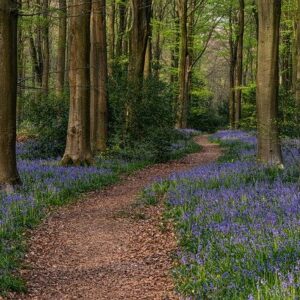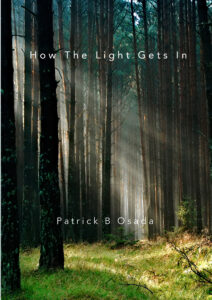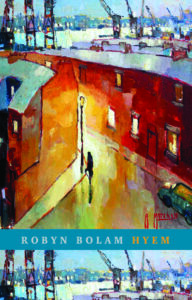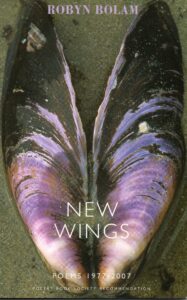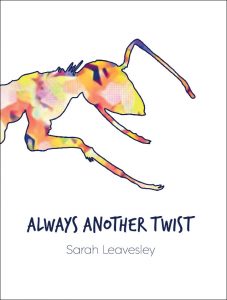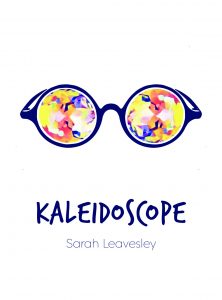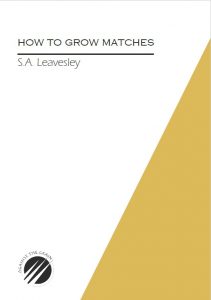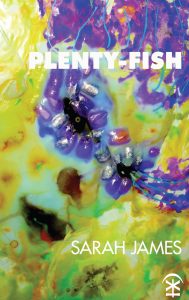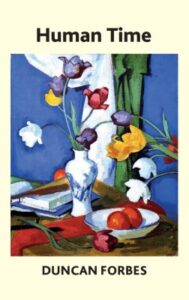New Build
poems and stories
scroll down to read poems and stories in our
Summer Issue
growing weekly from July to September 2020



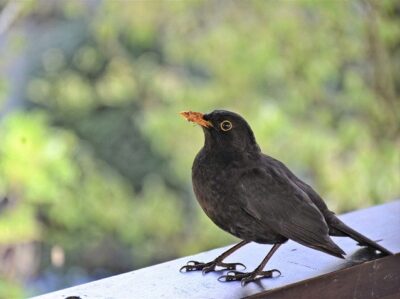
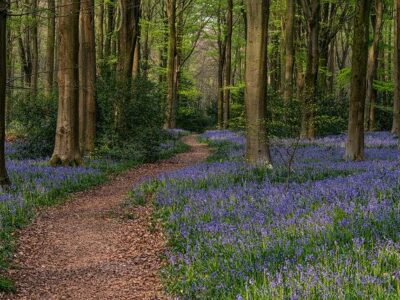

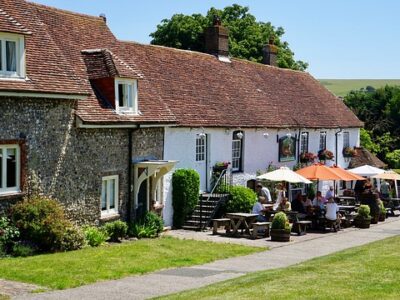

meet the poets and writers
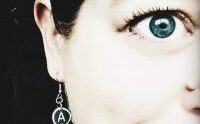
Kathryn Anna Marshall

Patrick Osada

Peter Burrows

Duncan Forbes

Robyn Bolam

S.A. Leavesley

Andrew Howdle

Lizzie Ballagher

Glenn Hubbard

Jane R Rogers

Ruth Sabath Rosenthal

Iris Hanson

José Emilio Pacheco

Cynthia Steele
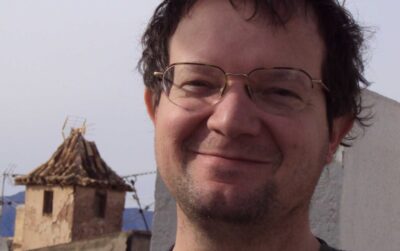
Guy Russell

Alun Robert

Sarah Beauclerk

Kate Chandler

Colin Bancroft

Sharon Phillips

Charlotte Fong
New Build
Our first poem for summer is by Kathryn Anna Marshall
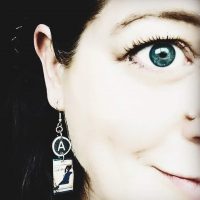
Kathryn Anna Marshall has been writing poetry forever but has only recently made the leap from scribbling furtive notes on the backs of envelopes to sending her poetry into the world, since her diagnosis with M.E.
Kathryn is inspired by goings-on inside and outside her head and loves the puzzle of putting feelings onto a page. She mainly writes poetry, but also enjoys working with short short fiction and relishes the challenge of producing a good story in one hundred words. She has one publication to date, in Mslexia magazine as part of their Autumn showcase.
Kathryn Anna Marshall – Your shadow at morning
Your shadow at morning
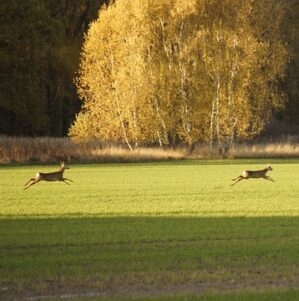

Sunsets, shadows, finches,
pylons, perceived blots, scars.
Old; older than my brother,
photographed, floodlit, mourned.
Finch pink contrast to Sabrina’s silt,
sun catchers signalling home; or
dark brood of hill hiders,
sky belchers, giants —
hot on the trail of smelting, of weld,
rebranding our pastoral past.
Leave us deer, leave us grass, leave us sun –
leave us swathe after swathe of homogenous homes,
anonymous footways,
sulphur masked stars.
Some tell me it’s better; still
my eyes fixate on that gap.
Kathryn Anna Marshall
Kathryn thanks Jo Clarke and Angie Silkstone of Both in Stitches for the image (below) and inspiration.

Patrick B. Osada is an editor and also writes reviews of poetry for magazines. He recently retired after ten years on SOUTH Poetry Magazine’s management team and as the magazine’s reviews editor
His first collection, Close to the Edge was published in 1996 & won the prestigious Rosemary Arthur Award. He has published six collections, How The Light Gets In was launched in June 2018.
Patrick’s work has been broadcast on national and local radio and widely published in magazines, anthologies and on the internet..
For more information about his work and a selection of his poetry, visit :
Patrick Osada – Owlswood Park
Owlswood Park
This old path ends, abruptly, at a fence
that circles round the place where trees had stood.
Once branches arched above a bluebell glade
but now, with scaffold poles, a forest’s made.
CONSTRUCTION SITE, KEEP OUT, the notice says
so from this world of brick all birds have flown;
no place of shelter for the roving deer
and rabbit, stoat and fox have disappeared.
In time the new estate will be unveiled
with streets named after “heritage we share” —
but not one creature, tree or plant remains
to prove this place was once more than their names.
Patrick B. Osada

Peter Burrows is a librarian in the North West of England. His poems have appeared most recently in Marble Poetry, Northwords Now, Dream Catcher and Coast to Coast to Coast. His poem ‘Tracey Lithgow’ was shortlisted for the inaugural Hedgehog Press 2019 Cupid’s Arrow Poetry Prize and appeared in the Cupid’s Arrow Love Poem Anthology.
peterburrowspoetry.wordpress.com
Peter Burrows – One for the Road
One for the Road


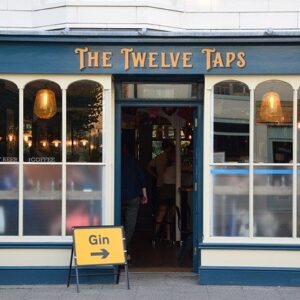
How long since we parted swaying in the night,
refreshed from standing at each bar, chills warmed
by the convivial fug. Rubbing hands
at the gleaming sweep of brass pumps showcasing
guest ales. But where do we begin? The Glory’s
boarded up. The Old House at Home trendy flats.
The Jester’s now a funeral parlour.
So, we bus past The Bull: ‘Séance tonight.’
Past pubs waiting saviours, signs that promise:
‘Great opportunities! Be your own boss,’
to long-sought welcoming lights. The White Lion
still roars (though it’s an age past early doors). Casks
flowing, where something more than this night remains.
Last orders? One for the road, and back again.
Peter Burrows
One for the Road was originally published in Now Then
Sweeping the Sands by Peter Burrows

Robyn Bolam has published four poetry collections with Boodaxe. New Wings was a PBS Recommendation and Hyem, which includes eco-poems with settings from the New Forest to New Zealand, appeared in October 2017. Widely anthologised, her work is included in Land of Three Rivers (Bloodaxe, 2017) and other publications including Eliza’s Babes: four centuries of women’s poetry in English. She was Hampshire Poet 2018 and, in 2016-17, led the combined-arts Ferry Tales project on the Solent.
Robyn Bolam – Unsettled
Unsettled
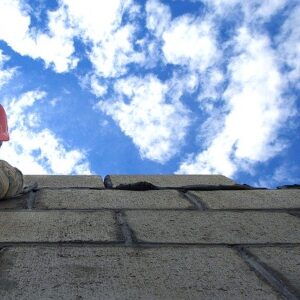
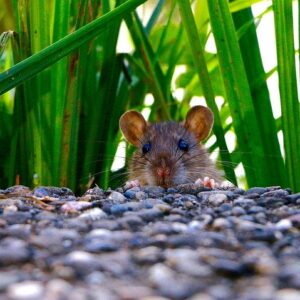
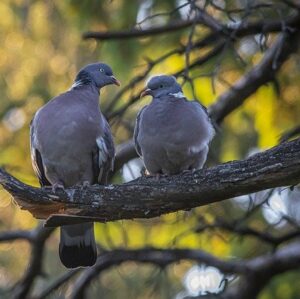
The houses in front of my garden are up to their gutters in mounds of topsoil –
an optical illusion: lights glow behind drawn blinds. And, out of the soil,
another new house is growing. It was flat as foundations, then a glimpse of brick.
Now its lower storey is bolting. Every night I come home to a different view.
Oak trees, roofs, an obscured church, and the street light that shines on my shed,
making it look as if someone is living inside, move closer together in the dusk.
Rats that fled the field when it was cleared, have tunnelled under next-door’s fence.
A field vole, popped up from his newly-dug hole, freezes when our eyes meet.
The fox that thumped my wall in the night to plunder a birds’ nest, is trotting
down the twittens with empty jaws. Blackbirds cease hopping; starlings
fall silent; pigeons squeeze together in the crook of a bough – then,
larger than you’d expect, two deer appear through dark rain. They leap.
Robyn Bolam
Starving after long rain, the barn owl hunts again by Robyn Bolam

Iris Hanson, originally from Hampshire, is now a Cardiff-based musician. She is an avid plant-keeper, and loves to watch the weather change over the water.
During lockdown, Iris planted the pips from a lemon and now has a grove of sixteen in her flat.
‘The Whistling Cages’ is Iris’ first published story.
Iris Hanson – Collection of Bones: The Whistling Cages
Collection of Bones: The Whistling Cages
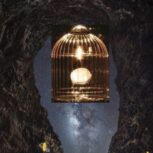

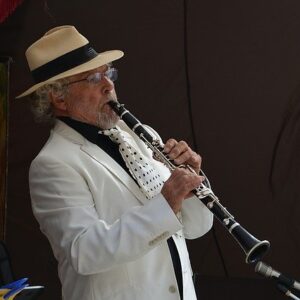


I had a dream that I was suspended from a cliff edge in one of the old cages. I don’t know how; they could barely support me when I was nine years old. I reasoned that it was a mixture of past and present, as most dreams are. And my lovely sea-view flat can sometimes act as a prison. Anyway, the wind had been roaring and groaning all night. It had probably skipped through my ears using my skull as a whistling cage. I told my friend about that, and she had no clue what I meant so I explained about the cages. I thought everybody knew about them considering they now charge a £12 entry fee. God knows what they spend it on; it’s definitely not knowledgeable guides.
I’m sure I heard one of the guides refer to my Mum’s stories. It was all I could do not to say ‘plagiarist’ pointedly and smother it with dry coughing. I don’t think Mum likes to think of herself as part of the history of anything. She said it made her age a decade every time she glanced in the mirror. I joked that she’d better not look more than twice or she’d be seeing a cage of worm food. Then she gave me the ‘I’m really bored of your immature quips’ look (which lasted for two uncomfortable seconds), sighed, and left the room.
The whistling cages were of gold filigree, embedded between the porous rock pillars. You can find them high in the cliff caves along the Jurassic coast. Mum used to take me up there early on blustery Sunday mornings and tell me about them and that she was related to them through her Jewish ancestry. I’m convinced she had her timelines mixed up, and wasn’t sure how you could be related to geological phenomena, but I always loved her stories, and who was I to correct her.
I’m not entirely clear on the connection because, as I said, I wasn’t entirely convinced at the time, and at the time I was about six. The idea is quite obvious. The cages are there so that when the wind is up, it would whoosh along the tunnels and through the cages, creating beautiful whistling music. Pure enough to calm the souls of the most belligerent pirates, Mum would say. I didn’t imagine they would have much time to lurk and contemplate within the caves, so to my young mind, it was probably not true.
The next cage I found to be significantly more problematic. These golden cages high inside the cliffs were based on the original whistling turtle clarinet used in the premier of Strauss’ Alpine Symphony. It was apparently more of an ocarina really, with the smallest holes played by your little fingers, located on the backs of the turtle’s knees and thighs. This is why the clarinettists must play it, due to their nimble little fingers. Not to say they have small fingers, just that their smallest finger is the most nimble amongst wind players. The cage developed into a highly ornate version with protruding tubes. I suppose that the tubes, over time, became a cage. Well, the bars of the cages were hollow, like a macaroni-spaghetti hybrid. I imagine that’s one way the wind used them.
Mum would sometimes bring along her bass ocarina. She usually wouldn’t play. I assumed at first it was because she was embarrassed. But I think perhaps it was to spite me, because she knew that what I wanted most was to hear her play a duet with the wind in the golden cages. She once told me about her grandfather playing Klezmer on his clarinet, and I suppose that’s her great connection. Exceedingly tenuous at best.
As a small child, I was curious. I always wanted to know how turtles got their nails clipped, but whenever I asked, Mum would stop whatever she was doing, and leave. Once, she threatened to lock me in one of the cages, and leave me there for a week. She said the birds might get in and peck out my eyes. I didn’t think they could, but she assured me she’d found a dead one up here once with its eyes gouged out. It was appendices like these that made her stories a bit less magical. Not the morbidity, just the plain-as-day flawed logic. Who pecked out the bird’s eyes? And how would it know where my eyes were, if it had no eyes? So I asked for clarification. Was I going to be blinded, or was it any bird that dared approach me? I didn’t want to be a bird-blinder. If I was, I couldn’t spend the afternoons with Dad feeding the ducks. So then, she actually did it. She stuffed me into a cage, slammed the gate, and ran down the steps, but not before giving it a kick for good measure. You couldn’t lock them, but it was terribly frightening. I wasn’t allowed to leave that entire day because, as she put it, I wouldn’t stop crying. Which made it sound as if I had a choice.
When I was a few years older, I used to play up there. We’d pretend to swing the cages out over the sea. Below one of them was a deep hole bored through the rock, like the toilet holes in old castles. You could see all the way down to the crashing waves.
I met a composer skulking around amongst the cages once. She said Beethoven would have hated it – too many intertwining melodies. But mostly because he’d never find his way out. Ever since then, I kept an eye out for bones. I found some once, too small to be human. My friend, Nell, said they were from a rat – she would know. But I argued that they had to be the bones of a sightless bird. She said the proof for that was long gone, and that I mustn’t believe my Mum’s stupid stories. I resented her for that.
Iris Hanson

Jane R Rogers is a member of Greenwich Poetry Workshop and co-edited Magma Issue 65. Jane’s poems have appeared in Atrium, Prole, Ink Sweat & Tears, The Curlew, Long Exposure Magazine, Tears in the Fence, Obsessed with Pipework, Tate Gallery Website poetry anthology 2012 among others. Jane lives in London but misses the West Country.
Jane R Rogers – The Dreamworld Drips with Reality
The Dreamworld Drips with Reality


I wake. I hear filmic rain at the window. It’s dark. I am alone in the house my parents bought in a recurring dream. Alien and familiar. Sprawling and claustrophobic. I look through one eye. The other is clammed shut. It needs my forefinger and thumb to hold it open. The clam eye sees black. I’m determined to walk around the house. In the bathroom I yank the cord for the light. Half the ceiling comes down. I wince, look with my clam eye which now sees blue. The bathroom walls drips with dust and water. I know I need to call the plumbers. I take another look and the bathroom wall has grown candles which flicker and revive. I’m sure my parents will notice their house is deteriorating fast. I will instruct the plumbers to restore the house to the tranquillity it has in that recurring dream. I sleep and I can see it clearly.
Jane R Rogers

José Emilio Pacheco (1939-2014) was the leading Mexican poet of the second half of the twentieth century who, In his later years, was visiting Professor of Literature at the University of Essex. Also a distinguished translator, essayist, novelist and short-story writer, he received all of the major literary prizes given in the Spanish-speaking world, including the Premio Cervantes (2009), Premio Reina Sofía (2009), Premio Federico García Lorca (2005), Premio Octavio Paz (2003), Premio Pablo Neruda (2004), Premio Ramón López Velarde (2003), Premio Alfonso Reyes (2004), Premio Nacional de Literatura José Fuentes Mares (2000), National José Asunción Silva Poetry Award (1996), and Premio Xavier Villaurrutia. Collections of his work in English translation include: Selected Poems, trans. George McWhirter (New Directions, 1987), Battles in the Desert and Other Stories, trans. Katherine Silver (New Directions, 1987), and City of Memory and Other Poems, trans. Cynthia Steele and David Lauer (City Lights, 2001). His collected poems are available in Spanish as Tarde o temprano (Poemas 1958-2009) (Fondo de Cultura Económica, 2009). Pacheco’s poetry is characterized by its precision, understatement, erudition, and preoccupation with humanity’s destructive tendencies toward both the natural world and itself.
José Emilio Pacheco – Three Poems about Houses translated by Cynthia Steele

Cynthia Steele is Professor Emerita of Comparative Literature at the University of Washington, Seattle. Her translations include Inés Arredondo, Underground Rivers and Other Stories (U of Nebraska P, 1996), José Emilio Pacheco, City of Memory and Other Poems (City Lights, 2001, with David Lauer), and María Gudín, Open Sea (Amazon Crossings, 2018). Her versions of other poems by Pacheco have been published in TriQuarterly, Delos, Agni and Prism. Those of other Latin American poets have appeared in various journals, including Michigan Quarterly Review, Washington Square Review, Southern Review, New England Review, and ANMLY.
José Emilio Pacheco – Three Poems about Houses translated by Cynthia Steele
- Blockbuster


The old family house has a sign: “For sale
as a vacant lot.” Before long
it will be another Burger King, Domino’s Pizza or Blockbuster.
The parents built it as newlyweds, so young.
Their daughters and sons were born and grew up.
Later they moved away. Because the essence
of family life is final dispersion.
Once the home was dissolved, the old parents died
and the house is for sale as a vacant lot.
Within a few weeks
they’ll rent videos about love and horror in this Blockbuster.
No one will notice the other drama:
the families coming together and falling apart,
being born, dying, and in between
immense life, always wounding and leaving so soon.
And the dust into which all houses turn.
José Emilio Pacheco
translated by Cynthia Steele
2. Limbo
It’s impossible to open the window.
It’s sealed. It has a device
to prevent suicides and keep the chaos out.
The climate control regulates the tired air
purified by another machine.
The picture window functions as a magnifying glass.
It all looks flawless.
But today the power went out
so there is no air and the water won’t rise.
The fishbowl of the thirtieth floor
(or the twentyninth: there is no thirteenth),
up near heaven,
was limbo.
The heat generated
has turned it into a third-world shack,
into an oil drum
where hell is boiling over.
José Emilio Pacheco
translated by Cynthia Steele
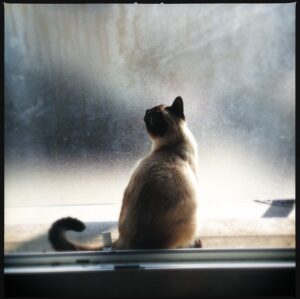
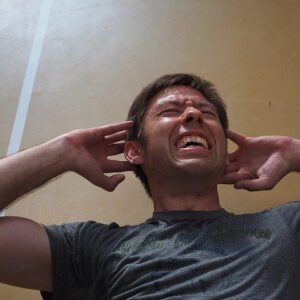
3. Demolition
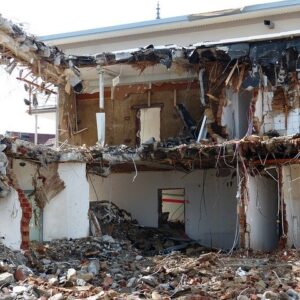


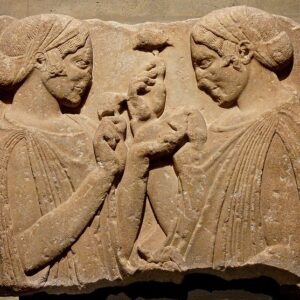

They’re tearing down the house in ruins,
and when it’s too late to save it, it turns out
to have been a colonial jewel, crushed
by the profit motive. They added on
“modern,” “functional” absurdities.
The most poignant or alarming part,
depending on how you look at it,
is finding under the patio where they kept
the delivery trucks
another patio, this one ancient,
with a fountain in pieces
and shards of vases and plates.
And thus everyday objects
are not always destroyed or transformed.
A few remain in some place
where no one looks again or remembers.
Perhaps on a third level
(in the ancient city, it wouldn’t surprise me)
they’ll find the shattered bones
of those who ate off these plates
and listened to time being liquefied
in the fountain’s waters.
If I pause for an instant on them,
on those forever undiscovered, anonymous lives,
I realize that this day, too, must someday be
remote prehistory.
And in the future Pompey,
our city of right now,
another excavation team
will rescue the humble things
that we spent our sad lives using up
–without stopping to think–
that, in the long run, they too will be remnants,
ruins of the inconceivable immemorial.
José Emilio Pacheco
translated by Cynthia Steele
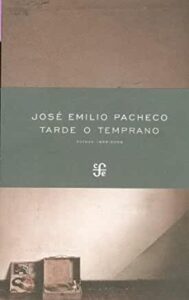
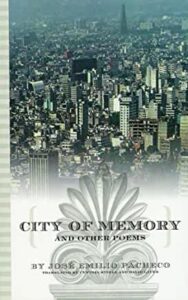
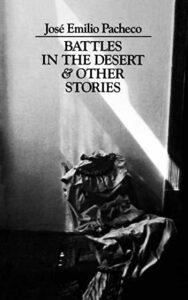
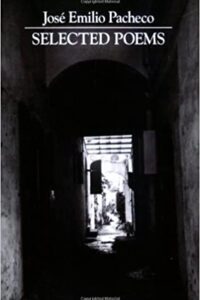
- Blockbuster


La vieja casa familiar tiene un letrero: “Se vende
como terreno.” Dentro de poco
será otro Burger King, Domino’s Pizza o Blockbuster.
La edificaron los padres, recién casados, muy jóvenes.
Nacieron y crecieron las hijas y los hijos.
Más tarde se apartaron. Porque la esencia
de la vida en familia es la final dispersión.
Ya disuelto el hogar, los viejos padres se mueren
y la casa se vende como terreno.
Dentro de pocas semanas
alquilarán videos de amor y terror en este Blockbuster.
Nadie reparará en el otro drama:
las familias que se hacen y se deshacen,
el nacer, el morir y en medio
la inmensa vida que hiere siempre y se va muy pronto.
Y el polvo en que terminan todas las casas.
José Emilio Pacheco
2. Limbo
Es imposible abrir la ventana.
Está sellada. Contiene un dispositivo
contra el suicidio y contra el caos de afuera.
El clima artificial regula el aire cansado
que purifica otra máquina.
El ventanal funciona como vidrio de aumento.
Todo parece impecable.
Pero hoy se fue la electricidad
y por tanto no hay aire ni sube el agua.
La pecera del piso treinta
(o veintinueve: no hay trece)
cerca del cielo,
fue el limbo.
Con el calor generado
se ha convertido en choza del tercer mundo.
Se ha vuelto paila de aceite
en la que hierve el infierno.
José Emilio Pacheco


3. Demolition
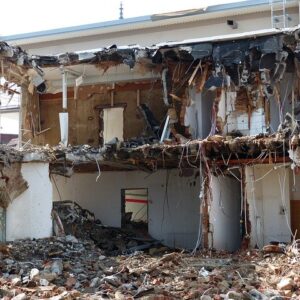



Están echando abajo la casa en ruinas.
Y cuando ya es muy tarde para salvarla resulta
que era una joya colonial, aplastada
por el afán de lucro. Añadieron
adefesios “modernos” y “funcionales.”
Lo más conmovedor o lo más alarmante,
según sea vea,
es hallar bajo el patio en donde guardaban
las camionetas de reparto
otro patio, esta vez antiguo,
con una fuente en pedazos
y fragmentos de platos y de vasijas.
Así pues, los objetos diarios
no siempre se destruyen ni se transforman.
Unos cuantos se quedan en un lugar
que nadie vuelve a ver ni recuerda.
Quizá en un tercer nivel
(en la antigua ciudad no es raro)
estarán los huesos deshechos
de quienes comieron en estos platos
y escucharon el tiempo que se licuaba
entre las aguas de la fuente.
Si me detengo un instante en ellos,
en para siempre ignotas vidas anónimas,
advierto que también este día se ha de volver algún día
la más remota prehistoria.
Y en la Pompeya futura,
nuestra ciudad de ahora mismo,
otro equipo de excavación
rescatará las cosas humildes
que gastamos gastando la triste vida
–sin pensar nunca
en que también serán a largo plazo vestigio,
ruinas de lo impensable inmemoriable.
José Emilio Pacheco

A published novelist between 1984 and 1996 in North America, the UK, Australasia, Netherlands and Sweden (pen-name Elizabeth Gibson), Lizzie Ballagher now writes poetry rather than fiction. Her work has been featured in a variety of magazines and webzines: Nine Muses, Nitrogen House, the Ekphrastic Review, South-East Walker Magazine, Far East, and Poetry Space.
She lives in southern England, writing a blog at
https://lizzieballagherpoetry.wordpress.com/.
Lizzie Ballagher – True Builders
True Builders
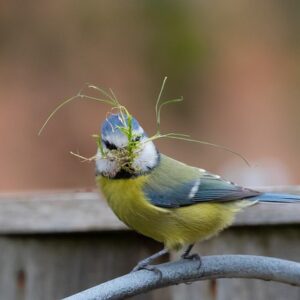
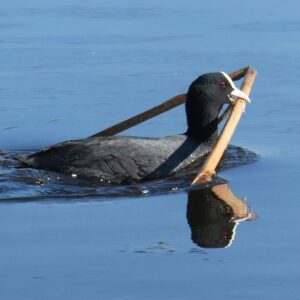
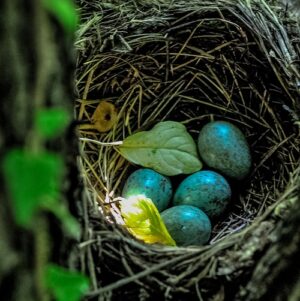
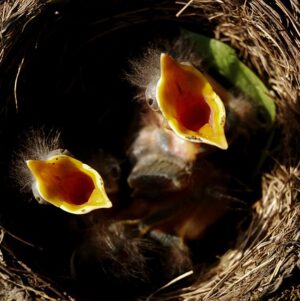
When men & their machines
have tramped, thumped away,
then the true builders return
with stick straw
& splinter of bark
clenched tenderly in claw.
When chopping axe & chainsaw
have stopped their cacophony,
then the true builders return
for moss & leaf, feather, fur, fluff
& discarded down
pinched tightly in beak
& set with care in twig-clefts
to rock:
little arks in weeks
of spring-gale seas,
yet strong to hold
homes,
hearts,
& speckled eggs;
to boast birdsong,
fledglings with mouths wide open:
more beaks, more claws
to build again—
& build again
& build again.
Lizzie Ballagher

S.A. Leavesley is an award-winning poet, fiction writer and journalist. Overton Poetry Prize winner 2015, her pamphlet, How to Grow Matches, was published by Against the Grain Press in 2018. She has been published by the Financial Times and The Guardian, on Worcestershire buses and in the Blackpool Illuminations. An occasional climber and surfer, she also loves swimming, cycling, walking and being outdoors.
S. A. Leavesley – More than ‘structurally unsafe’
More than ‘structurally unsafe’
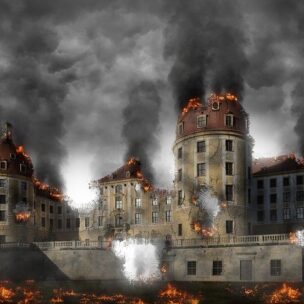

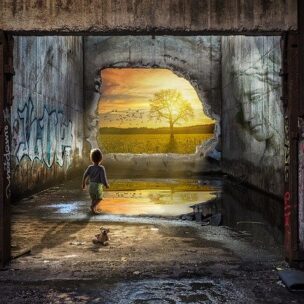
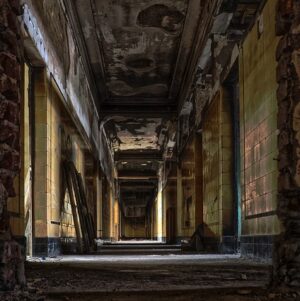
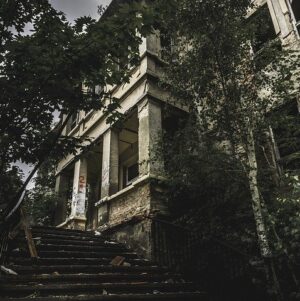
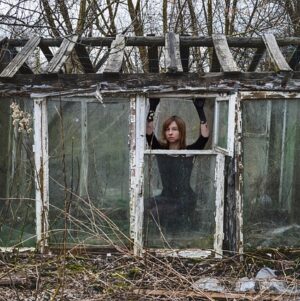
When fire blazed through Knowledge Hotel,
three storeys collapsed inside, reduced
within hours to smoke and shivers.
Graffiti claimed the ragged brickwork.
Mould seized the corners. Feathered things
moved into the charred rafters.
Burnt beams and broken windows host
dawn parties for daredevil skydivers.
Woodlice, rats and damp own the cold shadows.
At night, echoes of running feet,
gusts of ice wind through cracked walls,
beating wings that aren’t owls.
Small-town street-talk blames ghosts,
but it’s most likely doped-up kids.
No one likes to mention the other sounds:
strange fragments of music that quiver
on the air, then gone – a Pied Piper
shrilling to the lost. We gather again
at the doorway, our children’s names
wedged in our throats. We call
for the wild to be returned to the wild.
S.A. Leavesley
Still the Apple by S.A. Leavesley
The Disappearing River, Stream, Trickle by S.A. Leavesley

Andrew Howdle is a retired teacher and educational consultant. He lives in Leeds, England. He studied literature at the Universities of Manchester and York. Poems have appeared in Ekphrastic Review, Impossible Archetype, Singapore Unbound, Nine Muses, and Lovejets (2019), an anthology of poems paying tribute to Walt Whitman. His poem, ‘A Letter from York’, which won the 2018 Singapore Unbound poetry competition, was nominated for the Hawker Prize.
Andrew Howdle – Upcycling
Upcycling
RARE BIRD NESTS IN LEEDS THRUSH HOUR.
RSPB News.


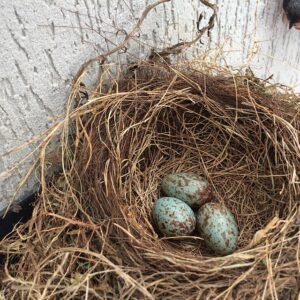
Undeterred by crowds,
A Mistle Thrush squats in her
Traffic-light-nest-box.
A systematic sun glows
Behind nonconformity.
Now and then, a beak
Rises, a feathered skull shifts,
And a dot outstares
The upwardly mobile eyes
Of students and their smart phones.
A sudden flapping
Of her left wing leaves a throng
Lost for words – even
Sellers of the Socialist
Worker eye her subversion.
Fiercely, she observes
From a pile of twigs and moss
With thermal heating –
Refraining from business rates –
Abstaining from council tax.
Andrew Howdle

Duncan Forbes’ poems have been published by Faber, Secker and Enitharmon, who brought out a Selected Poems, Lifelines, in 2009. It was drawn from five previous collections. Awards and prizes include a Gregory Award, TLS/Blackwells Prize, two Stephen Spender Times Translation Prizes and a Hawthornden Fellowship. A painter as well as a poet, he read English at Oxford and has taught for many years. Now retired, he lives in Gloucestershire. His latest collection is Human Time (2020). See www.duncanforbes.com
Duncan Forbes – High Speed 2 Limited
High Speed 2 Limited



Take an island in its silence,
Call the railway High Speed 2,
Plan its route and drive it through
What few tranquillities remain.
Big business bigots holding forth
Need faster trains from South to North
Or North to South and back again.
Consultation. Compensation.
Faster, faster. Buy disaster.
Job creation. Desecration.
Noise pollution. No solution.
Politicians make decisions.
Join the nation’s conurbations.
Fill the Chilterns with incisions.
Engineers design desires:
Sod the suburbs. Shaft the shires.
Squander squillions raised by millions:
Many billions to be wasted.
Natural beauties devastated.
Ask in future what we did
With umpteen thousand million quid.
What will anybody do
With those extra minutes too
In Euston, Birmingham and Crewe?
Duncan Forbes

Glenn Hubbard has lived in Madrid for 30 years and has been writing poems since 2012. Though fluent in Spanish, he is poetic only in English and has had poems published in a number of magazines. Nature and landscapes are often an inspiration for his writing. Spain has a lot of both.
Glenn Hubbard – Beyond the Window
Beyond the Window
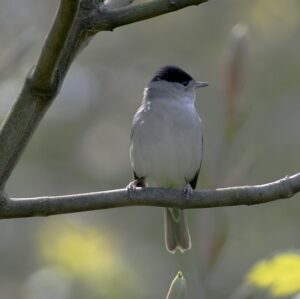
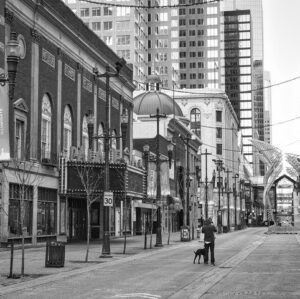

Out there somewhere is a blackcap. Perhaps
we scared it off the way we clap each evening.
I tend to think we deserve something like that
delightful fluting since we have been in our flats for weeks,
staring out at the trees, not flouting the rules, not going
on outings round the block, watching and worrying,
as we try to work out what the world will be like.
I have my binoculars to hand should he start up from down
in the empty park, but I think he might be an early morning
bird, already bored with singing by the time the man
at the newspaper kiosk arrives to lower his awnings
and the yawning dog owners appear with plastic
poo bags and, if they have remembered, dogs.
The barking is the forgotten ones, at windows.
The acacias have come into bloom and are now
almost out of it, the flowers saddening with each
day, those that survived the wood pigeon feeding
frenzy, which was only halted temporarily
by a male magpie intent on creating an exclusion zone
around the the site of its nest, his best
not good enough to stop the bloomfest.
Soon we shall be clapping, drowning the
singing of the blackbird with a lot to say.
Glenn Hubbard
Fruit in the 60s by Glenn Hubbard

Ruth Sabath Rosenthal is a New York City poet, well published in the U.S. and, also, internationally. In October 2006, her poem “on yet another birthday” was nominated for a Pushcart prize. Ruth has authored a chapbook Facing Home and 5 full-length books: Facing Home and beyond; little, but by no means small; Food: Nature vs Nurture; Gone, but Not Easily Forgotten and Of My Labor.
Ruth’s websites:
and her blog:
https://poetrybyruthsabathrosenthal.com
Ruth Sabath Rosenthal – A New Build on an Old Lot
A New Build on an Old Lot



our new house
so like the ones before
utterly still but for
even fiercer currents
of indifference charging
through long corridors
& spiral stairs winding `round &
`round the mausoleum-
like structure
father
mother
sister
me
each still
dead set against
getting anywhere
near one another
even accidentally
Ruth Sabath Rosenthal

Alun Robert is a prolific creator of lyrical free verse. He has achieved success in poetry competitions across the British Isles and North America. His work is published regularly by literary magazines, anthologies and webzines in the UK, Ireland, Italy, South Africa, Kenya, USA and Canada. He is a member of the Federation of Writers Scotland for whom he was a Featured Writer in 2019.
Alun Robert – This Was My Tomato Patch
This Was My Tomato Patch




just out of town
off the costal road
within parameters of urban planning
unintelligible to the masses
stands a new built office block
(possibly you know it)
multi-floors high
des res apartments on top
de rigueur exposed stainless steel
flecked concrete and marble
blue tinted reflective windows
florescent neon signs
full width sheltered verandas
daily manicured lawns
multi-coloured fountains
different spouts every hour
retail emporia at street level
zero occupancy “To let”
a gym in the bowels
not a jock in sight
of a car park for Porsche
for soft top Maserati
for metallic grey SUVs
but not a vehicle inside
was until a year past winter
my heritage
my smallholding
with greenhouses in pieces
shattered glass
rusting frames
occasional rouge tomatoes
withered leaves drooping
weeds as tight as my gut
when I completed the fire sale
Alun Robert

Sarah Beauclerk has created an array of story-telling pieces. Some of her favourites include a rocking piano called Chichi; an opinion piece for The Guardian in which she described the challenges of her job at that time in care-work; and the ‘Hello Stranger’ novella which was first presented as a small handwritten table for an exhibition at the Nhow Milano, currently being made into an audio play. Other key works have been shown in the Museum of Modern Art Milano, the Museum of Science and Technology Milano, and she has worked in a design capacity as far afield as Reykjavik and Shanghai. Sarah’s main project today involves combining creativity and care, bringing the healing experience of Nature to those who cannot physically reach it through Virtual Reality Wellbeing Walks and Meditations featuring the stunning Pembrokeshire landscape. She lives with her husband (writer and tutor) Charles, collie-dog Gwir, and four hives of buzzing bees.
Sarah Beauclerk – Defaunation of Character
Defaunation of Character


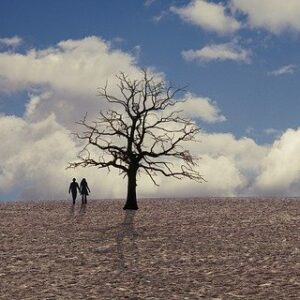
Seychelles Sheath-tailed Bat,
Great Indian Bustard of Gujarat,
Jamaican Rock Iguana,
The Baishan Fir of China.
We’re almost out of Wild Yam
And Edwards Pheasant, of Vietnam.
Finished, Bullock’s False Toad
Due to the widening of a road.
The Belin Vetchling of Turkey,
The Tonkin Snub-nosed Monkey.
Goodbye, Farewell, Rodrigues Rail.
So long to the New Zealand Quail,
Rest in peace dear Flat-top Snail,
And from Spitsbergen, the Bowhead Whale.
Burning bright?
Bali, Caspian, Hyrcanian, Turan, Javan.
These Tigers,
Gone.
Deforestation, desecration, mutilation.
Empires raised on exploitation.
Where is the hedgehog? Where are the bugs, the bees,
As we poison slugs and cut down trees?
A silent spring, an empty sea,
All in the name of ‘humanity’.
And yet we are still not happy. What will it take?
Sarah Beauclerk

Colin Bancroft is currently in exile in the North Pennines where he is finishing a PhD on the Ecopoetics of Robert Frost. His pamphlet ‘Impermanence’ is out with Maytree Press in October.
Colin Bancroft – Developments
Developments
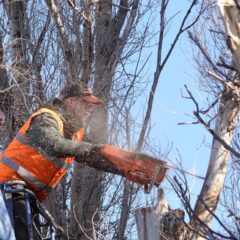

I always stopped to listen to the bird song
From the copse of oak beyond the lane.
No two concerts were ever the same.
But not now, because
the trees are long
Gone. Now there are houses there, and cars
That bang out Drum n Bass and old-skool
Hip-Hop – and a forest of streetlamps that spool
Out a canopy each night to catch the stars.
Colin Bancroft

Guy Russell was born in Chatham, UK, and has been a holiday courier, purchasing clerk, media analyst and fan-heater production operative. He currently works in Milton Keynes for the Open University. Stories in Somewhere This Way (Fiction Desk), Brace (Comma Press), To Hull And Back 2018, Madame Morte (Black Shuck), Liars League and elsewhere. Poems in Troubles Swapped For Something Fresh(Salt), The Iron Book of New Humorous Verse (Iron), The Rialto, The Interpreter’s House and elsewhere. He reviews sometimes for Tears in the Fence.
Guy Russell – A New Superstore
A New Superstore
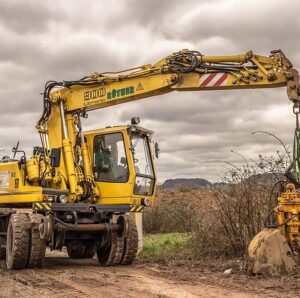
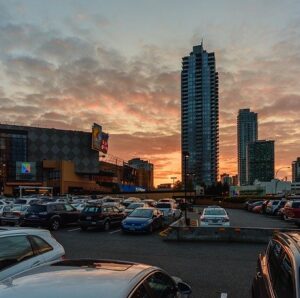
The grass on the horses’ field has grown
Into thirty-one high-quality homes.
New cul-de-sacs are budding from the lane.
The bypass spawns another bypass. Soon
A superstore will spring. It’s due for planting:
That last wasted thumb of woodland
Will feed us all for miles around.
I have this vision of us lamb-hunting.
Digging for frozen carrots. Picking fruit.
Stuck at the end of a line for a trout.
Shepherding our kids after dark
Across the rich black pasture of its car park.
Guy Russell

Kate Chandler is a heritage and cultural professional from Somerset. She has worked for the National Trust, English Heritage, and currently for the cultural sector in Ireland, where she lives at the edge of the Dublin Mountains. Her writing is rooted in the tangled, folkloric, and sometimes eerie natural world. You can find her on Twitter at @heritage_kate
Kate Chandler – The Screaming Tree
The Screaming Tree
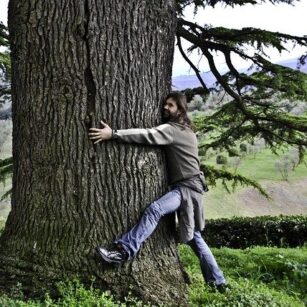

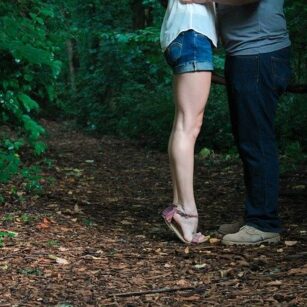

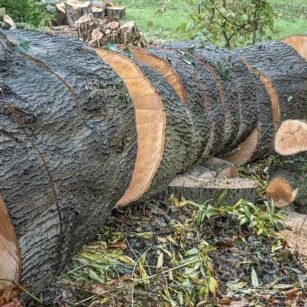
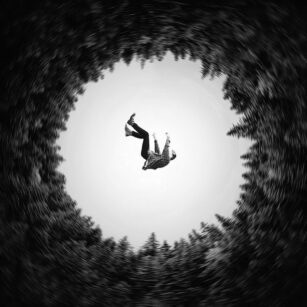

Joe and Lisa bought a wood.
#ecohome #goinggreen #sustainableliving #justmarried
They broke the news on their Instagram account with a cute picture of Joe hugging a tree from the park down the road. Autumn leaves fell around him like confetti. The followers loved it. Their phones were buzzing with notifications for days.
SO happy for you guys! #gogreen
OMG LOVE you two!!!!! #ecocouple
You guys are an inspiration #sustainableliving
In the cold winter months before their first visit to their wood, Joe and Lisa kept busy on Instagram sharing videos of garden centre hauls, photos of shepherds huts, treehouses, new builds with great glass windows looking out over rolling countryside. They posted pics of Lisa in dungarees, of Joe in lumberjack shirts, of brunch meetings with architects, of the ever-growing eco-home moodboard that hung in their flat.
#dreamhome #ecohomes #greenliving
Summer came. Joe and Lisa hired a range-rover and left the city. Lisa was wearing a headscarf, Joe had stubble and a lumberjack shirt. They both wore Timberland boots. In traffic on the M25 they shared their first selfie
#roadtrip #adventure #countrybumpkins
It was a long journey to their wood. The further west they drove, the patchier the signal became and narrower the roads. Joe crawled along the country lanes – there was mud everywhere, the white range-rover thunked through potholes. Lisa kept their followers up to date when signal allowed.
Eventually, they reached the wood. It was along a lane with grass growing up through the middle. The gate was wonky and rusted, it took some time for Joe to work it open. Lisa took a selfie of Joe carrying her over the threshold into the wood. They did a few retakes, and shared the best picture: Joe’s muscly arms and stubble, Lisa’s natural smile.
#homesweethome #ecohome #dreamhome #justmarried
The wood was a tangled mess. It looked as though nobody had set foot there for a long time. Wherever they stepped, twigs snapped like tiny bones. It wasn’t an easy wood to move about in. Hazel trees sprouted everywhere like upturned broomsticks. Joe wrapped a hand around a stem; it looked like they had been coppiced a long time ago. Somewhere in the trees a woodpecker thudded. Little paths wound through the leaf litter, tracks in the mud from the recent rain: deer, badger, fox.
Lisa was livestreaming to their Instagram followers, chatting into her phone and ducking through the wood. Joe was relieved to see her so happy: a country retreat of their own, with excellent signal – they couldn’t have planned it better. His own phone was buzzing in his pocket – Insta rooting them on. Perhaps things would get better now they were married, now they had a project to work on, a home to build together.
Joe eased the North Face rucksack off his back and leaned against the trunk of a tall ash. He brushed the bark with the back of his hands. It was cool and rough. He closed his eyes and took in a deep breath of wood. Other smells floated up from a distant corner of his memory: wet leaves and mud; freshly cut hay; muck spread fields; long lonely summer days. They were the smells of years ago, miles from here.
“So… Joe’s become an actual wood elf,” laughed Lisa, camera shining at him. He opened his eyes and smiled into hers which were half hidden behind her phone.
“For those of you who don’t know, this whole thing was Joe’s idea. Bae the treehugger.”
Joe grinned a toothy smile and turned around to hug the tree. It was rough and hard, and didn’t hug him back.
“So, everyone, this is where we’re going to have our eco-home. We can’t wait for you to watch us build it over the next few months. The first step is to make a clearing – our own little woodland glade! So, right now, just for you guys, Joe’s going to cut the first tree!”
He’d forgotten. The rucksack full of shiny new tools lay at his feet. He reached in and pulled out the saw, its teeth glinting.
There was a thin hazel beside him. It wouldn’t be too hard to cut, but impressive enough for their followers.
“Ready, guys? You are live in Joe and Lisa’s wood, and eco-home building commences in 3… 2… 1…”
The saw bit into the tree. It was harder than Joe had anticipated, like cutting into thick rubber. He pulled back and forth, the saw wobbling and bending with the effort, Lisa cheering him on. The phone in his pocket was buzzing so hard he thought it would explode.
He didn’t know when the noise began.
It grew gradually from somewhere unseen – it was not a sound he had ever heard before, or ever wanted to hear again. The thin trunk gave way as Joe jumped back.
“Did you hear that?” His voice was shaking.
“Hear what? Joe’s always such a joker,” she laughed into her phone and kept on chatting, getting the camera up close to the fallen trunk.
Joe dropped the saw, his fingers trembling, the sound still loud in his ears.
Years later, when the spot where the tree had stood was buried beneath layers of cement and steel, he would still hear it behind the silence of the empty house, like a voice trapped forever in the sustainably sourced walls.
The phone kept buzzing, the likes growing and growing, comments budding and swelling like leaves growing at a hundred times their natural speed:
Go team green! #greenbuilding #ecohome
Congrats! Don’t forget the party barn!! #countryliving
You guys are my heroes #sustainablebuilding #ecowarriors
… Did anyone else hear that???? #screamingtree
Kate Chandler

Sharon Phillips started learning to write poems after she retired from her career in education. Her poems have been published online and in print, and have been shortlisted and commended in a number of competitions, including the Bridport Prize (2017 and 2019) and the Yaffle Prize (2020). Sharon won the Borderlines Poetry Competition in 2017 and was among the winners of the Poetry Society Members’ Competition in November 2018. She lives in Otley, West Yorkshire.
Sharon Phillips – Learning Their Language
Learning Their Language
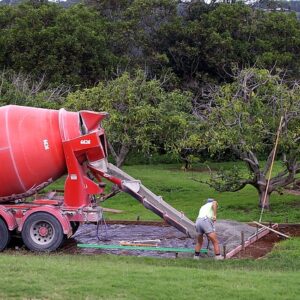
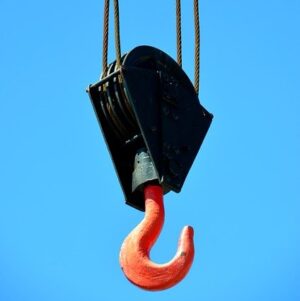
Tender and braces, core and grid:
words I knew, their meanings twisted
into strange new shapes. I sat quiet
as talk drifted past, its syntax butting
incongruous words together, to speak
of pouring slab or making envelopes
watertight before winter, of quantities
measured and desire lines plotted.
Sometimes it was music that took me
aback, the beat of stink pipes or soffits,
purlins and stack-bonded block work,
once that startling image of skyhooks.
Sharon Phillips
Three Poems by Sharon Phillips

Charlotte Fong is training to become an English Teacher, whilst experimenting with writing poetry, flash fiction, and short stories. She has recently been long-listed for the Bath Flash Fiction Prize and had poetry featured in Young Ravens Literary Review. She lives in Lancaster, UK with her husband and enjoys frequent visits to explore the beautiful nature and scenery of the Lake District.
Charlotte Fong – City Dwellers
